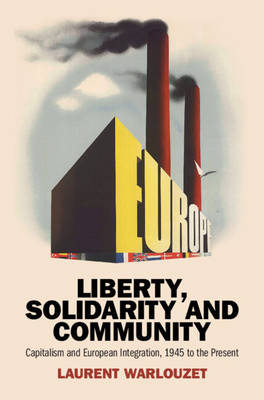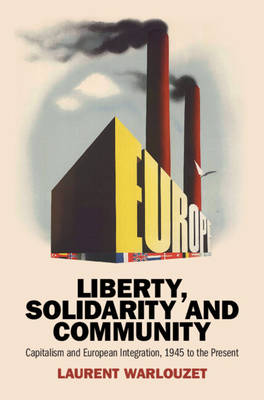
- Afhalen na 1 uur in een winkel met voorraad
- Gratis thuislevering in België vanaf € 30
- Ruim aanbod met 7 miljoen producten
- Afhalen na 1 uur in een winkel met voorraad
- Gratis thuislevering in België vanaf € 30
- Ruim aanbod met 7 miljoen producten
Zoeken
Liberty, Solidarity and Community
Capitalism and European Integration, 1945 to the Present
Laurent Warlouzet
Hardcover | Engels
€ 121,95
+ 243 punten
Uitvoering
Omschrijving
How have European countries coped with the challenge of industrial capitalism and the rise of superpowers? Through an analysis of European integration from 1945 to the present day, Laurent Warlouzet argues that the European response was to create both new institutions and an original framework of governance for capitalism. Beyond the European case, he demonstrates that capitalism is not just a contest between free-markeeters and their opponents, those in favour of welfare and environmental policies, because there is a third camp which defends protectionism and assertive defence policies. Hence, the governance of capitalism has three foundational principles - liberty, solidarity and community. The book explores debates among Europeans about how to address global interdependence in political, economic, and environmental terms. It is based on fresh archival evidence collected in eight countries. This title is also available as open access on Cambridge Core.
Specificaties
Betrokkenen
- Auteur(s):
- Uitgeverij:
Inhoud
- Aantal bladzijden:
- 390
- Taal:
- Engels
Eigenschappen
- Productcode (EAN):
- 9781009682640
- Verschijningsdatum:
- 12/03/2026
- Uitvoering:
- Hardcover
- Formaat:
- Genaaid
- Gewicht:
- 500 g

Alleen bij Standaard Boekhandel
+ 243 punten op je klantenkaart van Standaard Boekhandel
Beoordelingen
We publiceren alleen reviews die voldoen aan de voorwaarden voor reviews. Bekijk onze voorwaarden voor reviews.







